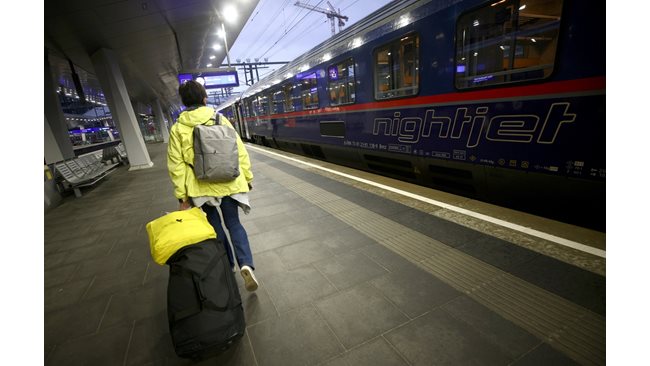Bulgaria wants a test from returnees from Greece – necessarily in Latin
For $ 15, Turkey offers foreigners COVID health packages in case of infection
Europe is slowly loosening border restrictions, allowing tourists to finally plan a summer migration to beaches or historic sites. The so-called EU green certificates to enter into force on 1 July at the latest. And while most Asian countries, along with Australia and New Zealand, are still closed to outsiders, here’s what we need to know before going on holiday to Europe.
GREECE
Passengers may be subject to random rapid tests at the airport. Anyone with a positive result will be accommodated in a hotel for at least 10 days with their companions at the expense of the Greek government.
It is allowed to travel three passengers and the driver in private cars. Wearing masks is mandatory if the passengers are not relatives and do not live at the same address. For violations, the fines are 300 euros for each passenger in the car. The evening hours remain in force from 0.30 to 5 o’clock in the morning.
Returning to Bulgaria who do not have a vaccination document must present a negative rapid or PCR test in Latin. Recently, Bulgarians returning by bus from Greece were placed under a 10-day quarantine because the Greek laboratory issued documents to them only in Greek, and RHI-Blagoevgrad, at the Kulata border checkpoint, could not read them and did not recognize them.
CYPRUS
To register, you need to register online, fill in a travel form and a permit to enter Cyprus, which should be printed out. Additionally, a negative PCR test for COVID-19 performed up to 72 hours before the trip is presented. Upon arrival at the airport, tourists are required to undergo a repeat PCR test at their own expense at a cost of 30 euros.
TURKEY
All arrivals must show a negative PCR test done up to 72 hours earlier. For only $ 15, Turkey offers health insurance packages for foreigners that cover up to 30 days of treatment and hospitalization for COVID-19. Hotels and resorts are open with limited capacity, and restaurants and cafes are not yet open.
RS MACEDONIA
There are no restrictive measures for those entering from Bulgaria – without PCR or antigen test, without quarantine and online registration. Curfew is from 0 a.m. to 4 p.m. Open-air restaurants are open until 11:30 p.m.
SERBIA
There is no requirement for arrivals from Bulgaria, Albania, Bosnia and Herzegovina, Northern Macedonia and Montenegro to submit a PCR test. For travelers from all other countries, a negative PCR test performed up to 48 hours before entry is required.
ROMANIA
The following is a list of countries in the green, yellow and red zones in terms of risk. Bulgaria is in the green, from which entry into Romania is free – no quarantine is required and no test or other documents are required.
ITALY
The evening hour is in force from 11 pm, but on June 7 it will be moved to midnight. It is expected to drop out at the end of June. Masks are mandatory for everyone over the age of 6, outdoors and indoors.
CROATIA
Visitors from EU Green List countries can travel without restrictions. Those who come from other European countries must provide a negative test, proof of vaccination or a certificate of illness. Bars and restaurants are open, but only outside.
MALTA
The island has been open to tourists since June. Vaccinated people will be allowed without restrictions, while everyone else will have to pass a negative test.
NETHERLANDS
Arrivals need not only a negative PCR test done up to 72 hours earlier, but also a quick test 4 hours before departure for the country. However, they are quarantined for 10 days, from which they can be released with a negative test on the 5th day.
No test or quarantine is required for those fully vaccinated and cured. The rest must isolate themselves if they come from certain risk areas, including Bulgaria, Italy, Greece and parts of Spain. FFP2 surgical masks or respirators should be worn in shops and on public transport, as plain cloth masks are not sufficient.
AUSTRIA
Arriving from 35 countries, mainly from the EU with a low level of infection, including Bulgaria, are not quarantined if they present one of the three documents – a vaccination certificate in German or English, a document from a doctor for the last 6 months ( an antibody certificate not older than 3 months) or a test is also allowed. The result can be PCR, not older than 72 hours, or a rapid antigen test, not older than 48 hours. Online registration continues.
PCR tests will be free for all visitors this summer. It is still open in the evening from 9 pm to 6 am. It will start at 11 pm after June 9, and is expected to be canceled after June 30. Museums such as the Louvre open, as do theaters, cinemas and cultural sites across the country, including Versailles. Disneyland in Paris will open again on June 17.
BELGIUM
Arrivals from the EU, Schengen and the EU safety list are allowed, but almost all are colored red. Citizens of such countries are required to perform a PCR test.
SPAIN
Arriving from most EU countries, including Germany, Ireland and France, must pass a test. After June 7, vaccinated people will be able to travel freely.
PORTUGAL
If tourists have not done a test in advance, they can be tested upon arrival at the airport at their own expense. People from countries with a high incidence rate must be quarantined for 14 days.
CZECH REPUBLIC AND HUNGARY
Travel for tourist reasons remains prohibited in both countries.
POLAND
All travelers must show a negative COVID-19 test (PCR or antigen) performed up to 48 hours before arrival, otherwise they are subject to 10 days quarantine. This does not apply to vaccinated people.
– .

:quality(80)/cdn-kiosk-api.telegraaf.nl/78fc2126-beb0-11eb-a77b-02d2fb1aa1d7.jpg)
